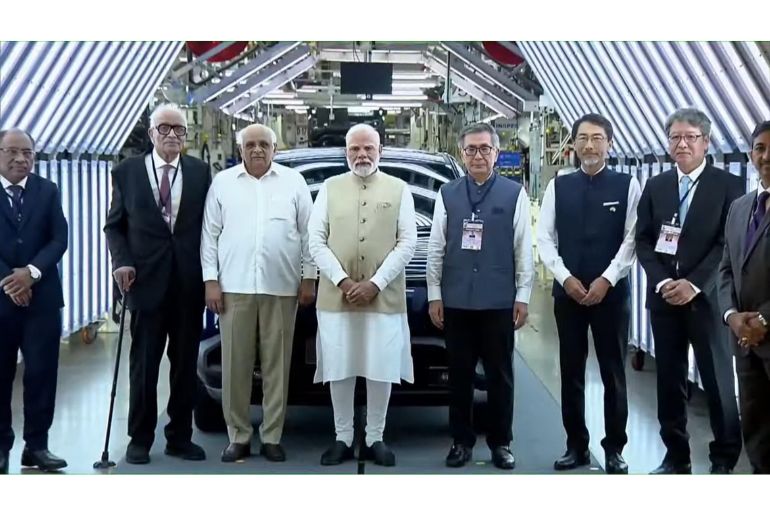Prime Minister Narendra Modi unveiled a landmark initiative for India’s electric vehicle (EV) transition by flagging off Suzuki Motor’s first Made-in-India global strategic Battery Electric Vehicle (BEV) — the e-Vitara. The event, held at Suzuki’s Hansalpur plant in Gujarat, represents a major leap in India’s mission to become a global hub for sustainable mobility.
e-Vitara: Made in India, Made for the World
The e-Vitara is not only Suzuki’s first BEV manufactured in India but also a flagship for exports, with the company confirming shipments to more than 100 countries, including advanced automotive markets such as Japan and Europe. This milestone strengthens India’s role in global EV supply chains while also reinforcing the Make in India, Make for the World vision.
Focus on Self-Reliance in Battery Manufacturing
Alongside the vehicle launch, PM Modi also inaugurated hybrid battery electrode manufacturing at the TDS Lithium-Ion Battery plant in Gujarat, a joint venture between Toshiba, Denso, and Suzuki. With electrode manufacturing shifting to India, more than 80% of battery value addition will now be localised, reducing dependence on imports and aligning with India’s Atmanirbhar Bharat (self-reliant India) goals.
PM Modi’s Vision for Clean Mobility
In his address, PM Modi emphasised that clean energy and clean mobility are central to India’s development roadmap. He underlined that:
-
EVs and hybrids offer sustainable solutions to pollution and energy security challenges.
-
India’s democracy, demographic strength, and skilled workforce make it an attractive destination for global partnerships.
-
The collaboration with Suzuki and Japan reflects the growing strength of India-Japan relations, which have significantly shaped India’s automobile industry over decades.
He also fondly remembered the late Osamu Suzuki, noting his pivotal role in establishing Maruti Suzuki as a household name and a cornerstone of India’s automotive ecosystem.
A Broader Push Toward Future Industries
PM Modi highlighted that India is not only advancing in EVs but also making strides in semiconductors, critical minerals, and next-gen technologies, which are critical to achieving the nation’s target of becoming a developed economy by 2047.
Event Attendance
The ceremony was attended by Gujarat Chief Minister Bhupendrabhai Patel, Japan’s Ambassador to India H.E. Mr Ono Keiichi, and senior officials from Suzuki Motor Corporation.
This dual milestone — the launch of the e-Vitara and local battery electrode production — underscores India’s commitment to clean mobility, green manufacturing, and strengthening its global presence in the electric mobility ecosystem.

